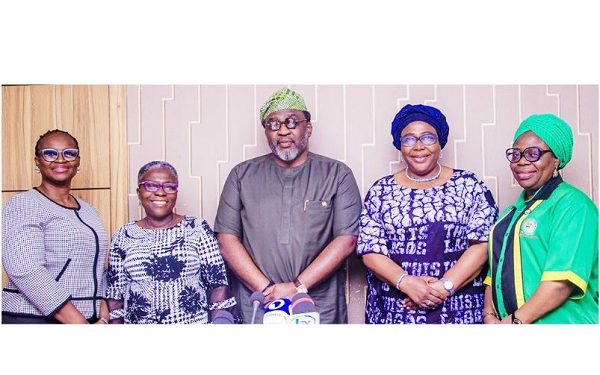In a strategic move to enhance its social protection framework, the Lagos State Government has stepped up efforts to build a robust, transparent, and data-driven system for identifying and supporting vulnerable citizens. At the centre of this initiative is the Lagos State Single Social Register (LASSR), a critical subset of the National Social Register designed to streamline access to federal and state-level social interventions.
Speaking at a recent press briefing in Alausa, the Lagos State Commissioner for Budget and Economic Planning explained that the LASSR project is key to identifying residents eligible for various social welfare programmes, including the Federal Government’s cash transfer scheme. He stressed that in today’s reality of subsidy removal, forex instability, and economic uncertainty, the importance of accurate data for targeted relief cannot be overstated.
He noted that the state’s partnership with the National Identity Management Commission (NIMC) has facilitated the integration of National Identification Numbers (NINs) into the LASSR to improve accuracy, eliminate duplication, and enhance transparency. Over 130,000 household heads have already been verified and linked to their NINs across all 20 Local Government Areas and 37 Local Council Development Areas in just one month, with Ikorodu, Alimosho, and Mushin leading in registrations.
So far, Lagos State’s database contains 688,759 heads of households and 2,681,507 individual members. The Commissioner described this as a “transformative step” towards ensuring that no resident is left behind in the delivery of social protection under the state’s THEMES+ agenda.
The Permanent Secretary of the ministry added that this rigorous exercise will help weed out name duplications and ensure that government assistance reaches only the genuinely vulnerable. The Commissioner also confirmed that the data-gathering phase is expected to conclude by July this year.
He highlighted that several state ministries and agencies, including the Ministry of Women Affairs and Poverty Alleviation, Ministry of Wealth Creation and Employment, and Ministry of Agriculture and Food Systems, are currently spearheading relief programmes that range from financial grants to food support for hard-to-reach communities.
Complementing these efforts is the Sanwo-Olu Listens Financial Assistance Programme, a social intervention platform launched in 2020 to provide direct financial relief to Lagosians facing hardship. According to the Special Adviser to the Governor on Political, Legislative and Civic Engagement, the programme has disbursed N2.46 billion to 8,690 beneficiaries in the past year alone. These funds have helped offset medical expenses, cover school fees, pay rent, and support small businesses across the state.
The adviser also announced that an additional N1.6 billion will be distributed to 1,000 beneficiaries in the coming weeks as part of the state’s Sallah palliatives. He described this as part of a broader commitment to inclusive governance and poverty reduction.
In addition to financial relief, other programmes like Eko Cares have supported over 6,000 entrepreneurs with tools and resources to build sustainable businesses, while N400 million has been allocated for maternal and child nutrition. Over 6,000 mothers and children have benefited from these nutrition-focused interventions.
The state also launched Snacks for Thought, a school feeding initiative aimed at improving learning and nutrition among public school pupils. This programme has provided balanced meals to 11,965 children, contributing to better educational outcomes and health.
Finally, the government’s digital engagement platform, Citizens Gate, has received more than 400,000 responses in the past year. These feedback entries have helped inform policy decisions and improve government responsiveness, underscoring the administration’s drive for citizen-centered governance.
Altogether, these interventions demonstrate Lagos State’s coordinated push to create an inclusive social safety net, backed by accurate data, multi-agency collaboration, and a firm commitment to lifting its most vulnerable residents out of poverty.










